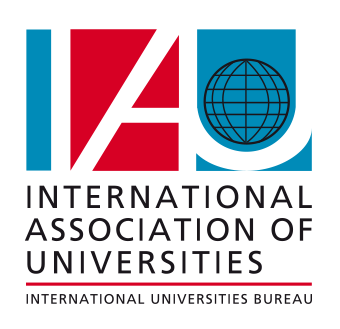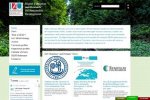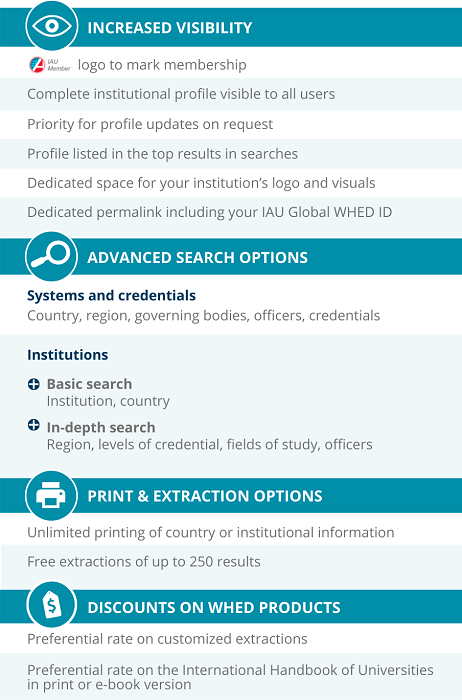-
Specialized portals
World Higher Education Database (WHED)
The World Higher Education Database WHED is the International Association of Universities’ (IAU) unique online reference portal that provides comprehensive and detailed information on Higher Education Systems, Credentials and Institutions around the world. It provides authoritative information on higher education worldwide. In partnership with UNESCO, the IAU secretariat receives and updates information in the WHED on an ongoing basis focusing each year on one specific region.
IAU Global Portal on Higher Education and Research for Sustainable Development (HESD)
The IAU Global Portal on HESD is a collaborative platform gathering sustainable development initiatives undertaken by higher education institutions worldwide. It aims to allow IAU members to share their successes and inspire the higher education community.
To get involved in the various portals mentioned above please go to the respective portals and /or contact us.
-
World Higher Education Database (WHED)
IAU WHEDTHE WORLD OFHIGHER EDUCATIONAT YOUR FINGERTIPS 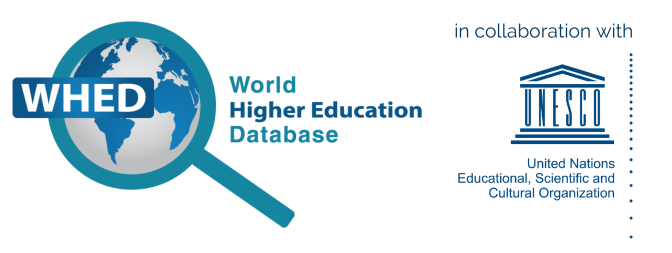
WHAT IS WHED?
The unique database providing authoritative information on higher education systems, credentials and institutions worldwide
The World Higher Education Database (WHED) is the IAU unique online reference portal that provides authoritative information on some 19,800 accredited higher education institutions as well as on higher education systems and credentials in 196 countries and territories. It is globally recognized as an official source of information.
IAU has been collecting this data since its foundation in 1950. The WHED has evolved constantly to meet the needs of the global higher education community. The WHED team collects, processes, validates and publishes comprehensive and detailed higher education data on the portal on a continuous basis. It is a collaborative project with UNESCO and includes the following information:
INSTITUTIONS SYSTEMS & CREDENTIALS  Basic Info
Name in English & native language, country
Basic Info
Name in English & native language, country
 In-depth info
In-depth info
History, source of funding, fields of study, divisions and degrees offered, accrediting body, admission requirements, key figures Key Contacts
Key Contacts
Names of key personnel AND NOW ! The Global WHED ID:
AND NOW ! The Global WHED ID:
a unique identifier for each HEI in the world ! National higher education structure
National higher education structure
 Quality assurance systems
Quality assurance systems
 Governing bodies
Governing bodies
 Credentials and admission criteria
Credentials and admission criteriaHow is data collected?
The IAU obtains its information from national higher education authorities, governmental agencies and national academic bodies.Who uses the WHED?
 Internationalization and Admissions offices at HEIs
Internationalization and Admissions offices at HEIs
 Governmental agencies and national authorities
Governmental agencies and national authorities
 Higher education grant-awarding authorities
Higher education grant-awarding authorities
 Quality assurance agencies
Quality assurance agencies
 International organisations
International organisations
 Researchers
Researchers
 Human resources in the private sector
Human resources in the private sector
How can I benefit from the WHED?
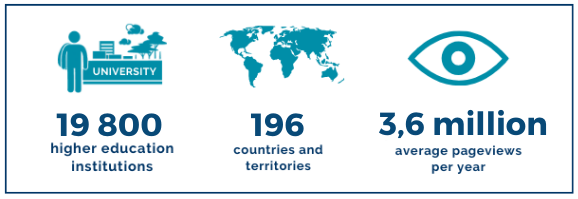
 SEARCH
Find the information you need through in-depth search functions
SEARCH
Find the information you need through in-depth search functions
 EXPLOREResearch and analyse the higher education landscape
EXPLOREResearch and analyse the higher education landscape EXTRACTObtain customized data sets
EXTRACTObtain customized data sets ADVERTISEIncrease your visibility as an IAU Member
ADVERTISEIncrease your visibility as an IAU MemberTHE GLOBAL WHED ID
The constant and rapid development of the higher education landscape, on all continents, triggered discussions with key stakeholders, initially UNESCO and the Agence Universitaire de la Francophonie (AUF), on the need to facilitate the identification of higher education institutions. This led to the development of a new feature called Global WHED ID, which uniquely identifies each higher education institution listed in the World Higher Education Database (WHED).
What purpose does the Global WHED ID serve?
This project gained additional momentum in connection during the drafting process of the UNESCO Global Convention on the recognition of higher education qualifications, submitted for adoption at the UNESCO General Conference November 2019 (IAU took part in the process).
The Global Convention aims to increase transparency in the higher education landscape at the global level, and to enhance orientation through the ever-expanding field of higher education, by providing a standard for the listings of accredited higher education institutions.
The new development serves several major goals that are dear to the Association:
 Foster transparency of higher education on a global scale;
Foster transparency of higher education on a global scale;
 Make available information on higher education systems and the list of nationally accredited higher education institutions to all;
Make available information on higher education systems and the list of nationally accredited higher education institutions to all;
 Help facilitate communication within the global higher education community;
Help facilitate communication within the global higher education community;
 Address the needs of Higher Education stakeholders seeking to identify accredited HE institutions and gather information on them;
Address the needs of Higher Education stakeholders seeking to identify accredited HE institutions and gather information on them;
 Increase access, speed and the reliability of information;
Increase access, speed and the reliability of information;
 Provide better overall administrative certainty;
Provide better overall administrative certainty;
 Finally yet importantly, combat fraud in higher education.
Finally yet importantly, combat fraud in higher education.Who uses the Global WHED ID ?
All stakeholders, whether they be higher education experts, researchers, accreditation officers, international student officers, UN agencies, or HR administrators, to name but a few.Special Benefit to IAU Members
The visibility of IAU Members is facilated in WHED through a permalink.GET ACCESS
While information on systems and credentials across the world remain open to access, different subscription offers are available and provide IAU members with special features to boost their visibility and make maximum use of WHED’s up-to-date and authoritative information on higher education institutions.
Discover the dedicated WHED features offered to IAU Members !
Download this information in PDF >> Need more information about Membership ? Click here
>> For more information contact centre@iau-aiu.net.
The International Handbook of Universities
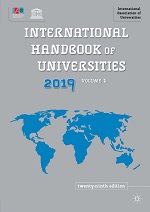 The International Handbook of Universities was first published in 1959 in response to the growing demand for authoritative information about higher education institutions. It has grown considerably over the years in both the quantity and quality of entries, and includes higher education institutions that offer at least a 4-year degree or a 4-year professional diploma. It is published every year. The latest edition - the 29th edition - was released in eformat and in print in December 2019.
The International Handbook of Universities was first published in 1959 in response to the growing demand for authoritative information about higher education institutions. It has grown considerably over the years in both the quantity and quality of entries, and includes higher education institutions that offer at least a 4-year degree or a 4-year professional diploma. It is published every year. The latest edition - the 29th edition - was released in eformat and in print in December 2019.
International Association of Universities
The Global Voice of Higher Education
The Global Voice of Higher Education
| Knowledge hub |
| NGO in official partnership with UNESCO in associate status |
| International Association of Universities, UNESCO House, 1 rue Miollis, 75732 Paris cedex 15, France |
| Contact | Sitemap | Terms of use | Credits |
